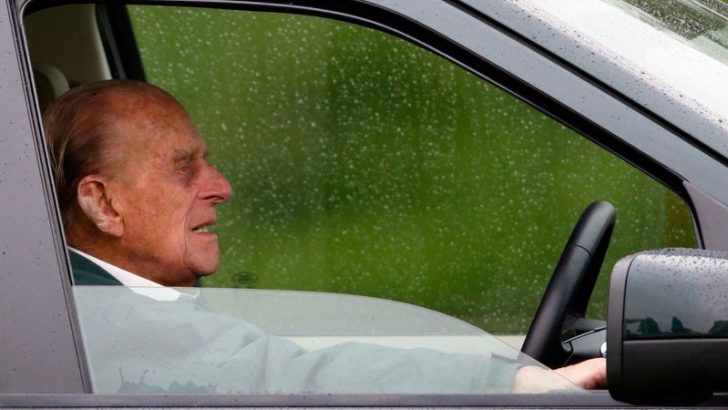Medical Matters
The issue of fitness to drive has garnered some media attention in recent weeks after Britain’s Prince Philip was involved in a road traffic accident that came close to inflicting serious injury. Undoubtedly, if he had youth on his side and wasn’t in his 98th year many eyebrows may not have been raised as regards his suitability to drive.
Nonetheless, it has brought into focus the regulations that govern the issuance of driver licenses in older adults and prohibitions or restrictions that are in place for a variety of medical reasons.
In Ireland, the first guidelines were produced in 2013 by the Road Safety Authority in collaboration with the Royal College of Physicians and are updated every year.
For older adults, there is no upper limit as to when a person can’t drive. Licenses for car drivers can be issued for up to 10 years until the age of 70. However, those 70 or older must renew their license at least every three years and require a medical certificate. In practise, this is usually completed by their GP though may require specialist expertise in those with certain medical conditions.
Contentious
This has been a contentious issue for many as only self-declaration regarding health is required for younger drivers who must report on a list of 23 medical conditions. Indeed, the director of National Office of Traffic Medicine recommended last year that the current mandatory doctor certification should be banned for older drivers.
If you drive when medically unfit you can be convicted under the Road Traffic Act 1961 and there also insurance implications.
So how many older drivers are there? In 2016, 10.2% of all full driving license holders in Ireland were aged 70+ and of those 65,000 were aged 80+.
Despite concerns, older drivers are less likely to be involved in road traffic accidents which is probably explained by a few important factors. Firstly, they tend to travel shorter distances but also are more likely to follow the rules of the road, not speed or ‘drink and drive’. In fact, they may have three to four times fewer accidents than young males.
However, by the age of 80 about 15% of adults have dementia and a further 15-20% have some degree of cognitive impairment. This can lead to impaired judgement, perception and reduced reaction times.
While dementia in its early stages does not necessarily preclude one from driving, it is usually recommended but not mandatory that an “on road assessment” is undertaken. This involves a qualified assessor observing the person drive in their own car and making an objective evaluation. Even when completed satisfactorily, restrictions may be advised such as to drive only in your local area, during the daytime and on minor roads and also to have a repeat assessment within six to 12 months.
Ultimately, it is up to your doctor to make the final decision. In particular, a once off assessment may not adequately capture a true picture. Indeed, expressed concerns by close family regarding driving often counts for more. Things to look out for are scrapes and dents on the car, hitting curbs, difficulty at exits and turns and poor control of speed.
Of course, prohibiting driving can have major implications for all ages and in many instances clinical discretion needs to be applied. There are, however, a variety of clearly defined medical conditions where driving cannot be allowed and some must be reported to the National Driver License Service.
For example, if you have epilepsy (which affects about, 40,000 people) you must be seizure free for at least one year before you can drive. Indeed, epilepsy is the most common reason for collapse at the wheel of a car.
There are also a number of cardiac conditions which impact on driving too. You should not drive if you have unstable angina and must wait for at least one week after a heart attack and a month after bypass surgery. When there is a high degree of suspicion that blackouts or dizzy spells are due to a cardiac cause, driving must cease until investigations are completed and/or the condition identitied and treated.
A mini-stroke will also result in a one-month ban and diabetics who have suffered with more than one episode of a signficantly low blood sugar in the last year will be restricted. There are also clear and minimum requirements set for vision.
Use of alcohol and pyschoactive drugs also falls within the guidelines. In those who have alcohol dependent syndrome, a ban for six months is advised and similar recommendations when there is a proven dependency on drugs such as cocaine, heroin and also cannabis.
To summarise, it’s not so much an issue of age but of medical fitness to drive and hence a pragmatic approach should be taken. Indeed, until recently the oldest driver in the UK was using her car at the ripe old age of 107!
Dr Kevin McCarroll is a Consultant Physician in Geriatric Medicine, St James’s Hospital, Dublin.


 Dr Kevin McCarroll
Dr Kevin McCarroll Prince Philip was recently involved in a car accident
Prince Philip was recently involved in a car accident 